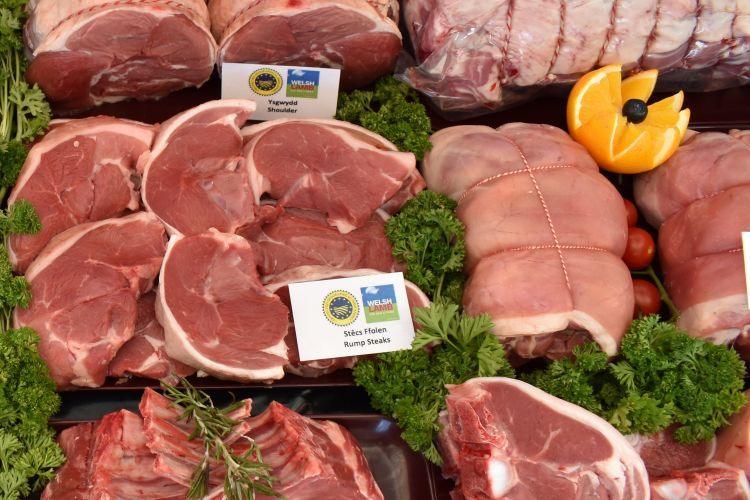
A UK-NZ trade deal might pave the way for more NZ lamb on the shelves, but given the choice most consumers would still buy British, a new study shows.
More than four-fifths of English and Welsh people would choose sustainable homegrown options over NZ lamb if it was the same price, Hybu Cig Cymru (HCC) said.
The study, carried out by the Welsh red meat body, found that consumers were clear on the distinctions between UK meat and meat reared and shipped from other countries.
Respondents felt that the sustainable and low-intensity nature of British lamb was important, with two-thirds (67%) aware that British lambs were able to roam freely.
The high-welfare nature of British lamb was also important for buyers, with over half (53%) stating that it was a priority for them.
Over a third (36%) said they would even pay more for lamb that is higher welfare, tastier and more sustainable.
Gwyn Howells, chief executive, HCC said it was 'clear' that buying British beef and lamb meant 'supporting world-leading sustainable farming'.
"These figures show that British consumers want to eat sustainable red meat as part of a healthy diet," he said.
"We want to encourage more people to eat red meat that is produced this way. If more people eat meat produced sustainably, we think that is a good thing.
"The global climate crisis we face is urgent and intensive farming systems are undoubtedly part of the problem."
Mr Howells said the answer was not to stop eating red meat, but to produce and eat it more sustainably and ethically.
Glyn Roberts, president of the Farmers' Union of Wales (FUW), said the benefits for the UK of the new trade deal were 'microscopic', but the damage that could be caused to the farming industry was 'massive'.
"The gas price crisis shows how dangerous it is to become over-reliant on foreign production of any commodity, and food is the most important commodity there is" he said.
"It is extremely concerning to see the government undermining UK food production in this way and potentially increasing the UK's reliance on food produced 11,000 miles away just days before the COP26 climate change conference."
NFU Cymru added that it viewed the UK-New Zealand trade deal with 'great apprehension for future generations'.
"With this announcement, the UK government’s direction of travel is abundantly clear," President John Davies said.
"It leaves me particularly worried about the cumulative impacts successive trade deals will have on Wales’ farmers, as slowly but surely the floodgates are thrown open to imports from all over the world.’’
